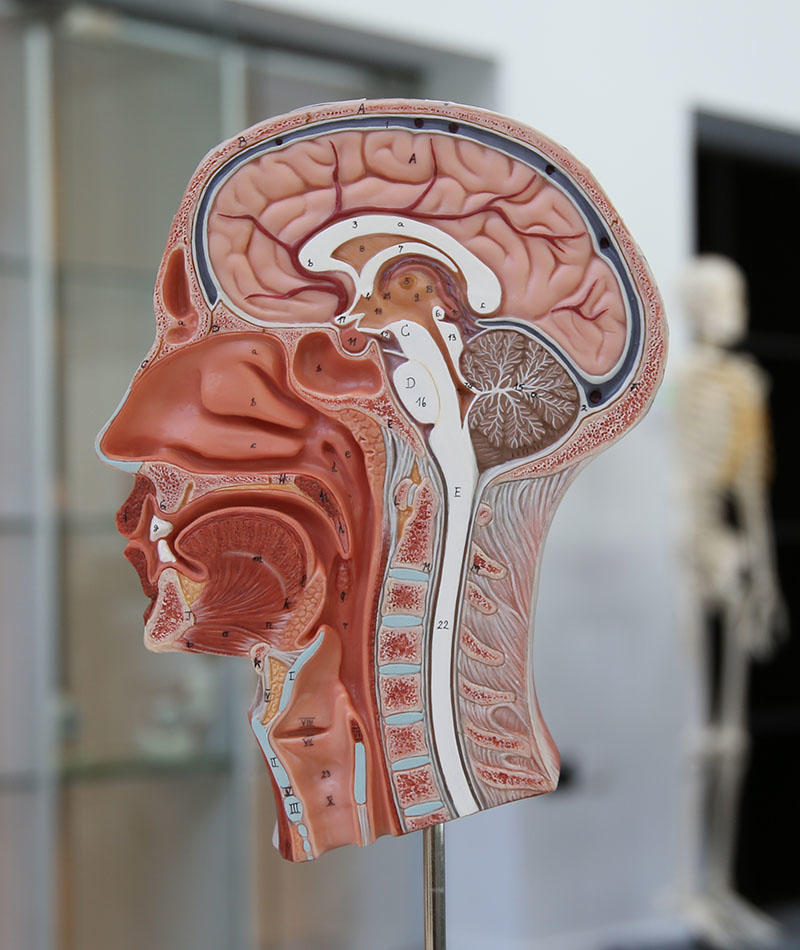An important thing to consider as you near the end of your degree is whether or not you're interested in applying for postgraduate study.
Postgraduate study can often feel like a daunting topic to approach. There are a lot of misconceptions about the application and funding processes, and the wide variety of courses available can seem overwhelming and unfamiliar. This blog aims to demystify all things postgraduate, and get you started on your journey to further study.
There are many reasons why someone might choose to pursue further study after graduation:
Boost you career prospects
 Some professions, such as Medicine, require a postgraduate degree
Some professions, such as Medicine, require a postgraduate degree
A postgraduate degree can increase your earning potential and enhance your job prospects. In fact, some professions require you to hold a postgraduate qualification before you can pursue them (e.g., Medicine).
Postgraduate study can also help you change your career entirely. For example, conversion courses can open up new opportunities and allow you to pursue a career that is unrelated to your undergraduate degree.
Specialise in a field the interests you
A postgraduate degree gives you the opportunity to explore your academic interests further, while developing skills in research, planning and critical thinking. While these are useful skills to have in any area of employment, they're particularly valuable to those hoping to establish themselves in academia.
Benefit from flexibility
There are a wide variety of part-time and remote postgraduate courses available. This increased flexibility not only allows you to fit your studies around your personal commitments, but also makes it possible for you to gain relevant work experience alongside your degree.
Types of postgraduate study
There are many different types of postgraduate study, meaning that with a little research, you're likely to find a pathway that suits you and your learning style. Below are some examples of postgraduate degree options you can explore.
Taught courses
Taught Master's courses are led by a course leader, with students attending weekly lectures and seminars. Common taught courses include Master of Arts (MA), Master of Science (MSc) and Master of Business Administration (MBA) degrees.
A full-time taught course typically takes one or two years, and will likely involve completing a dissertation or final project towards the end of your studies.
 Many professional qualifications relate to a specific industry such as Law, Teaching or Medicine
Many professional qualifications relate to a specific industry such as Law, Teaching or Medicine
Research courses
Not all postgraduate courses are fully taught. For example, a Master of Research degree (MRes) concentrates more on independent research.
The most common form of postgraduate research degrees, however, are doctorates, such as PhDs. The primary component of a PhD is the completion of a doctoral thesis, an in-depth research project on a specialist topic.
Professional qualifications
Professional qualifications are courses that relate to a specific industry or career. Completion of a professional qualification is sometimes a requirement for pursuing certain career paths.
Common examples of professional qualifications are PGCEs (Teaching), MBChB (Medicine) and LLMs (Law).
How to apply for postgraduate courses
Interested in applying for postgraduate study? Here's a step-by-step guide to the application process.
1. Find a course
Do your research and find a course you want to apply for. A good starting point for this research is the University's Course Search tool. Websites such as Find a Masters and Prospects can also be useful.
2. Check the entry requirements
Entry requirements will differ depending on the course you're interested in, so be sure to double-check that you're a suitable candidate.
Some courses will ask for a minimum degree classification (e.g., a 2:2 or higher). Don't panic if you haven't completed your undergraduate degree yet, as you can still make an application based on your predicted grades.
3. Apply online
Unlike undergraduate degrees, where you apply via UCAS, postgraduate applications can be made directly to the University. There are a few exceptions to this, however, including teacher training and conservatoire courses.
Once you're ready, go to the course page and click 'Apply Now'. You will then be navigated through each stage of the application process. You'll be asked to fill in some personal details, as well as your education and employment history. Some courses may require you to submit a portfolio or personal statement.
4. Upload your documents
As part of the application process, you will be asked to supply evidence of your previous education. This can be done by scanning your certificates and uploading them to your application. Again, don't panic if you haven't yet received your degree classification - this can be done at a later date.
Some courses may also ask you to provide one or more references to support your application, so be prepared for this.
5. Receive your offer
Once you've submitted your application, it's sent through to the relevant admissions tutors and reviewed. Some courses may ask you to attend an interview before making you an offer. If your application is successful, you will be contacted by the University and made a formal offer to study on your chosen course. If you're yet to complete your undergraduate degree, this offer may be conditional upon you achieving a specific degree classification.
How to fund postgraduate courses
Postgraduate fees can vary from course to course, and thinking about finances can often feel overwhelming. Here's all the info you need, including government-backed funding options and how the University can support you further.
Alumni Discount
The Alumni Discount is a 20% tuition fee reduction available to all Worcester graduates enrolling onto an eligible Master's or PhD course at the University. You can learn more about the discount by visiting the University's Course Fees page.
Postgraduate loans
For those of you interested in completing a PGCE, postgraduate funding works slightly differently. Instead, you'll apply for your loan via the undergraduate Student Finance portal. Learn more here.
Postgraduate Master's Loans help cover tuition fees and living costs while you study. Unlike undergraduate Maintenance Loans, the amount of funding you're entitled to is not based on your income, or your family's income.
Entitlement figures are reviewed annually and are subject to change, so for the most current information I'd recommend checking out the Master's Loan pages on the gov.uk website.
Doctoral loans
As with Master's Loans, eligible PhD students can apply for funding via the gov.uk website. Again, this funding is not based on household income.
Access to Learning Fund
The Access to Learning Fund is Worcester's hardship fund. It is a non-repayable grant administered by the University to help both undergraduate and postgraduate students who are experiencing financial difficulty.
Any further questions? You can contact our Postgraduate Admissions Office at pg-admissions@worc.ac.uk.